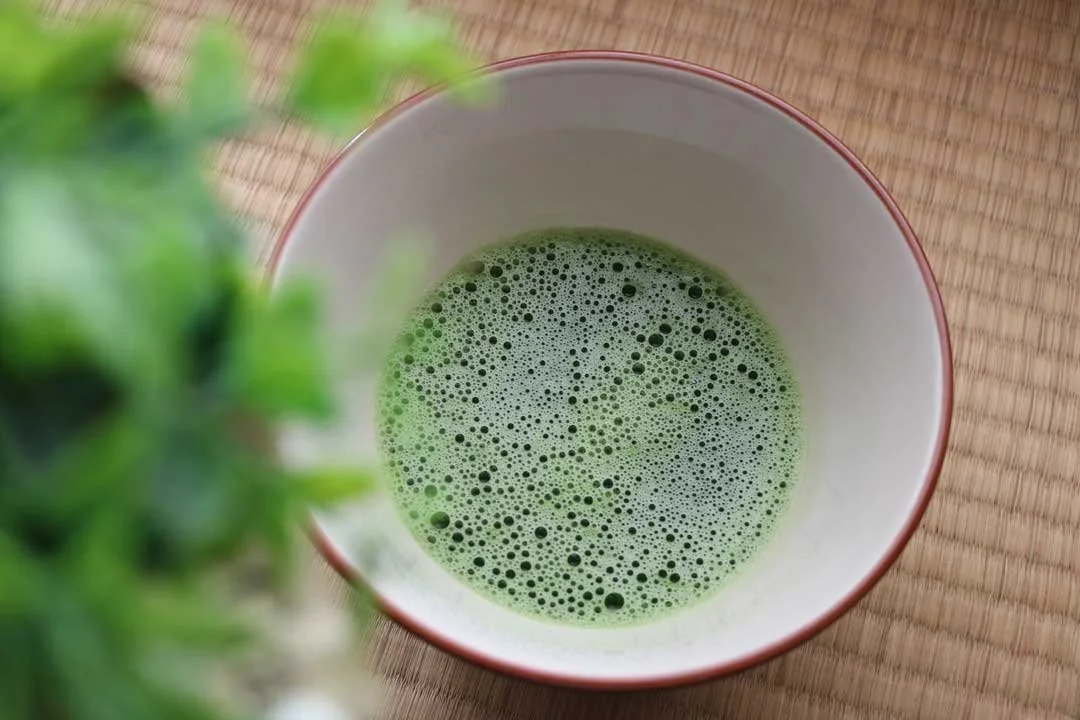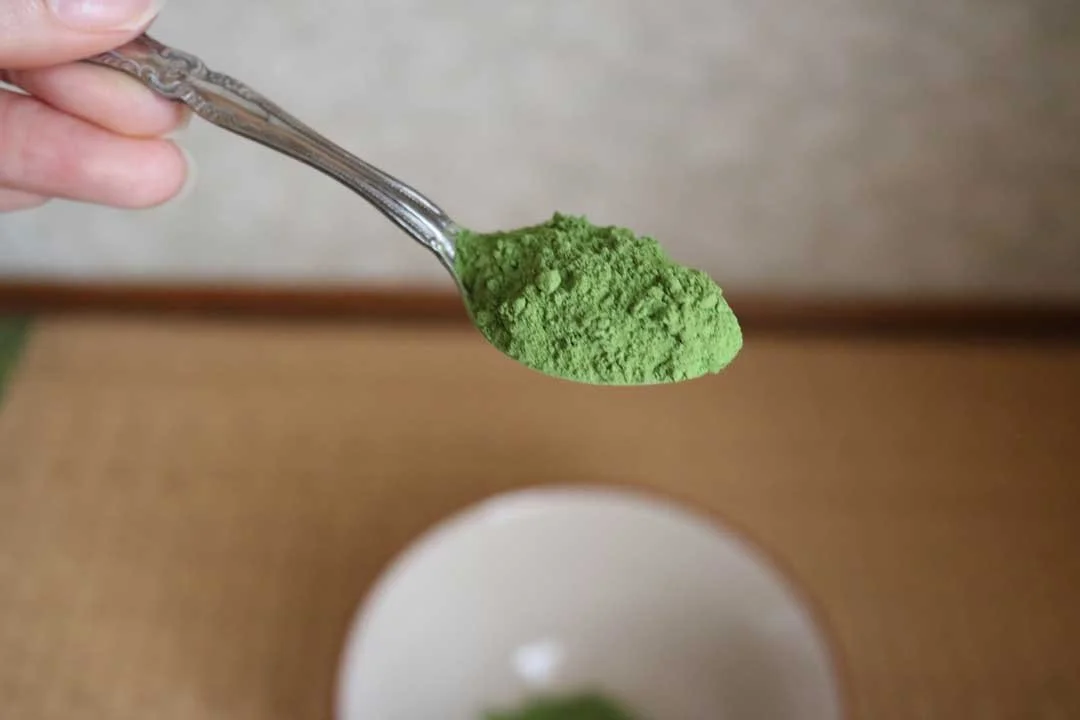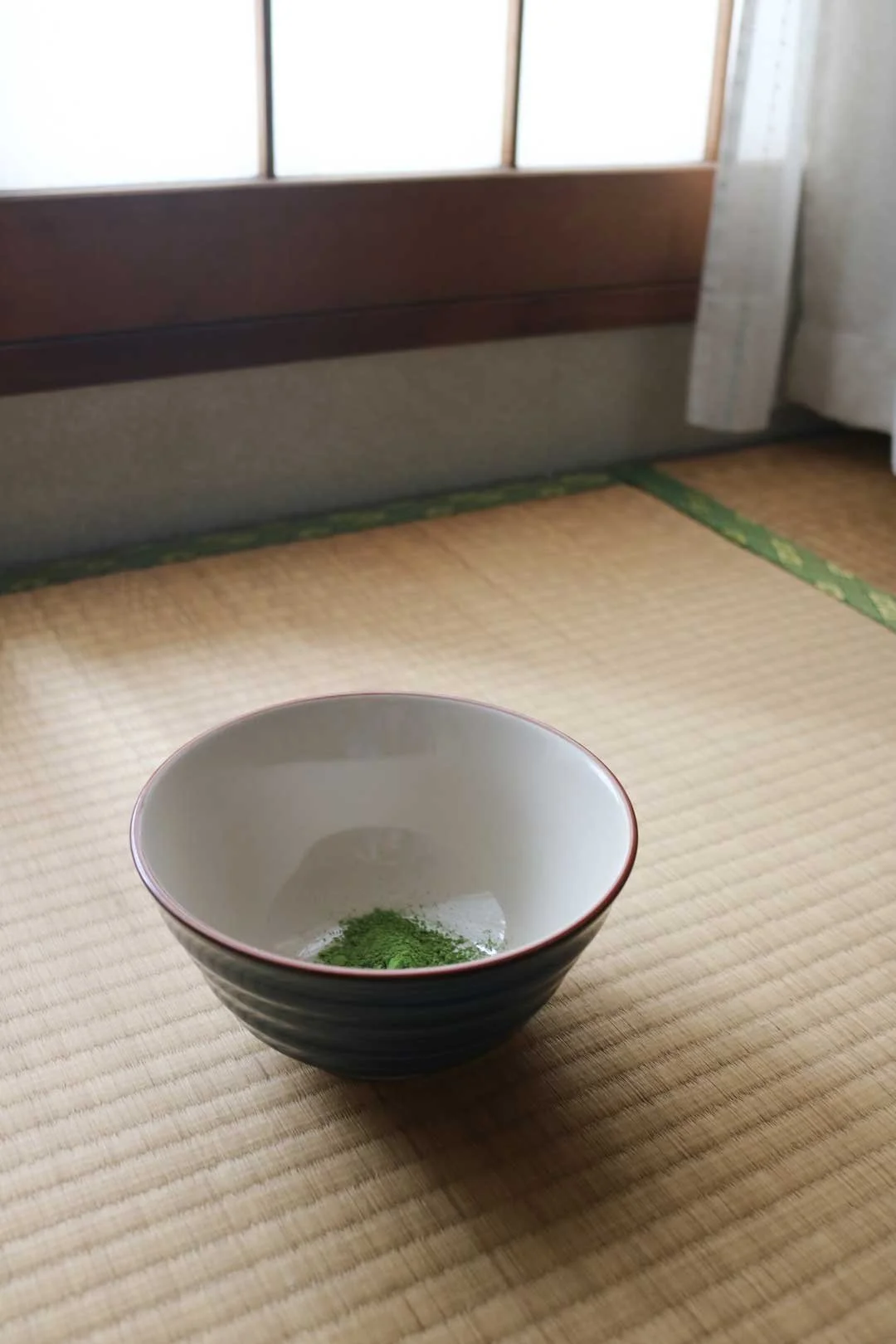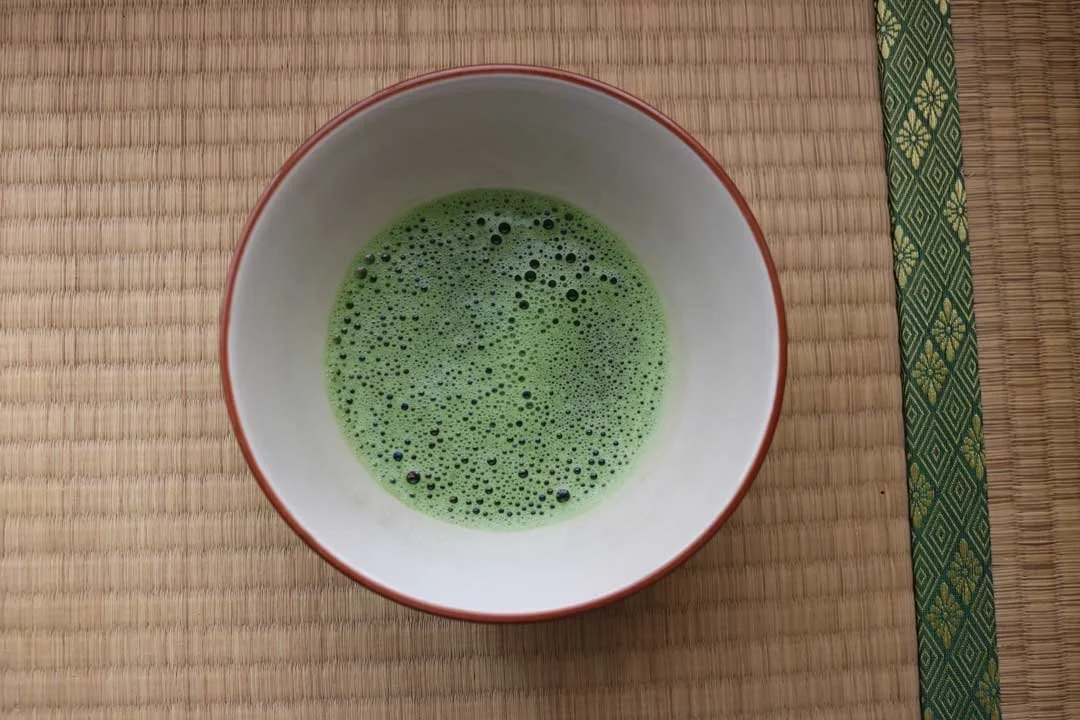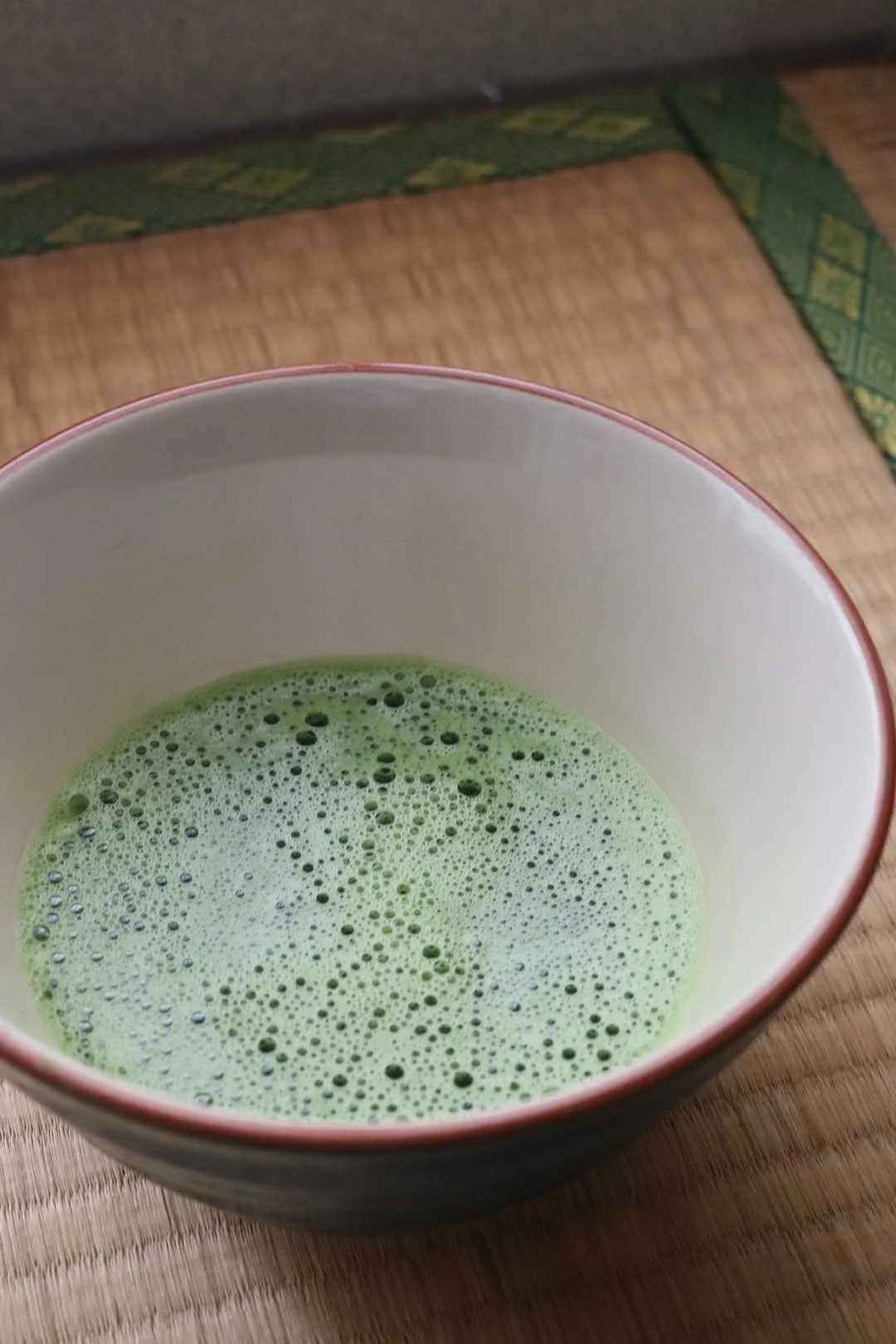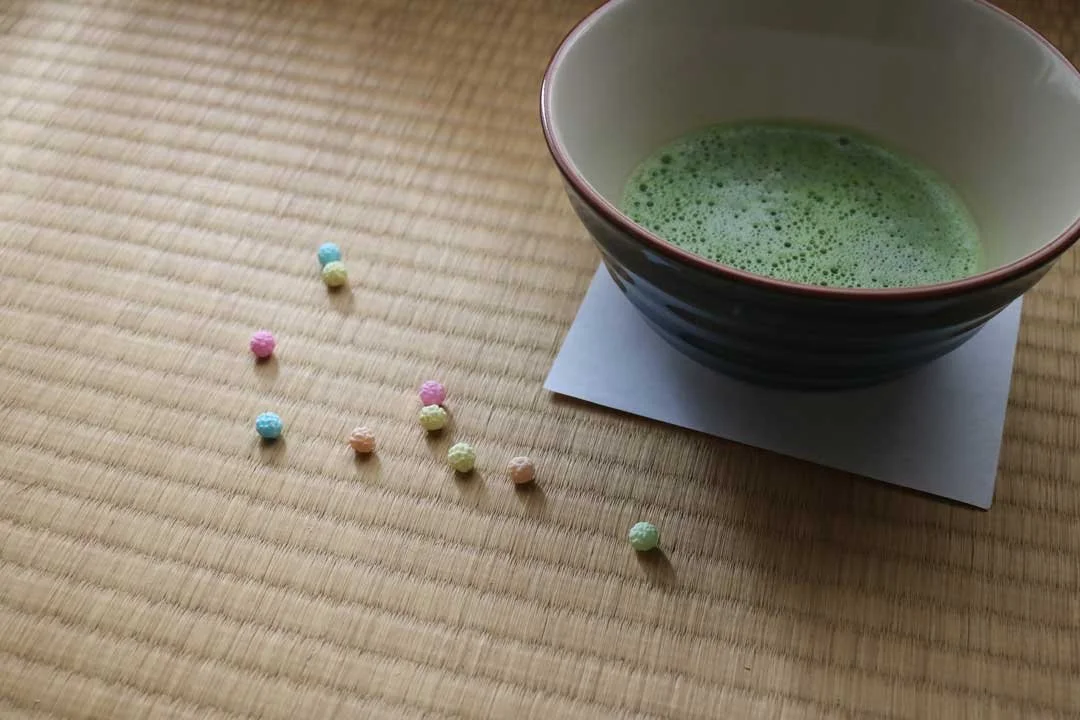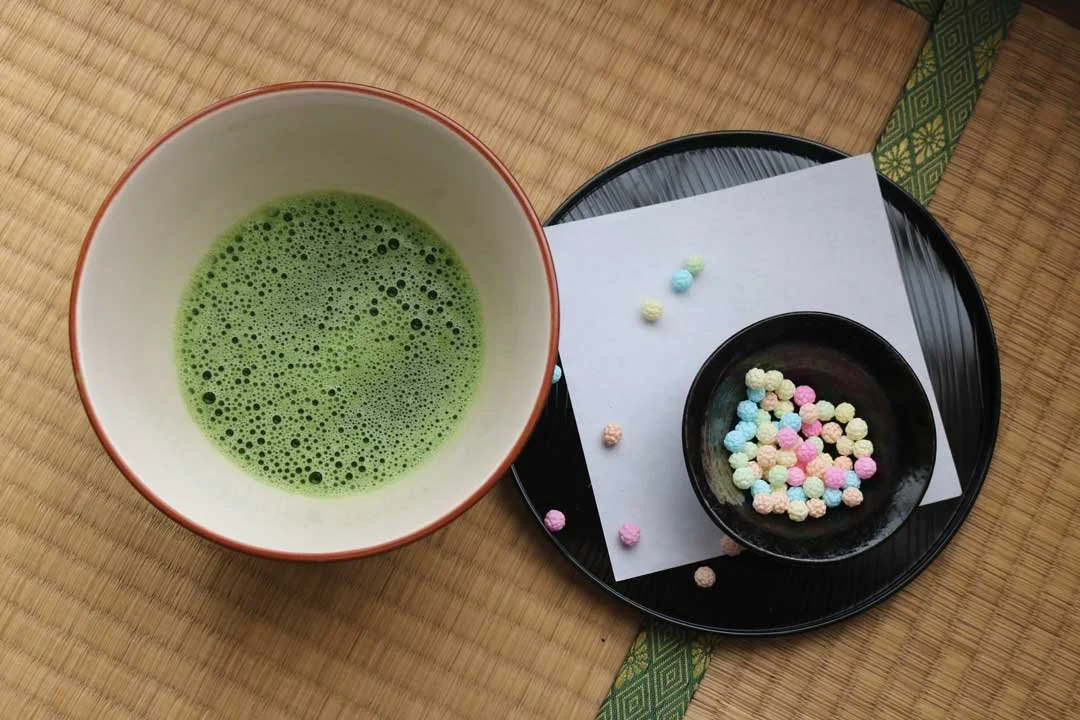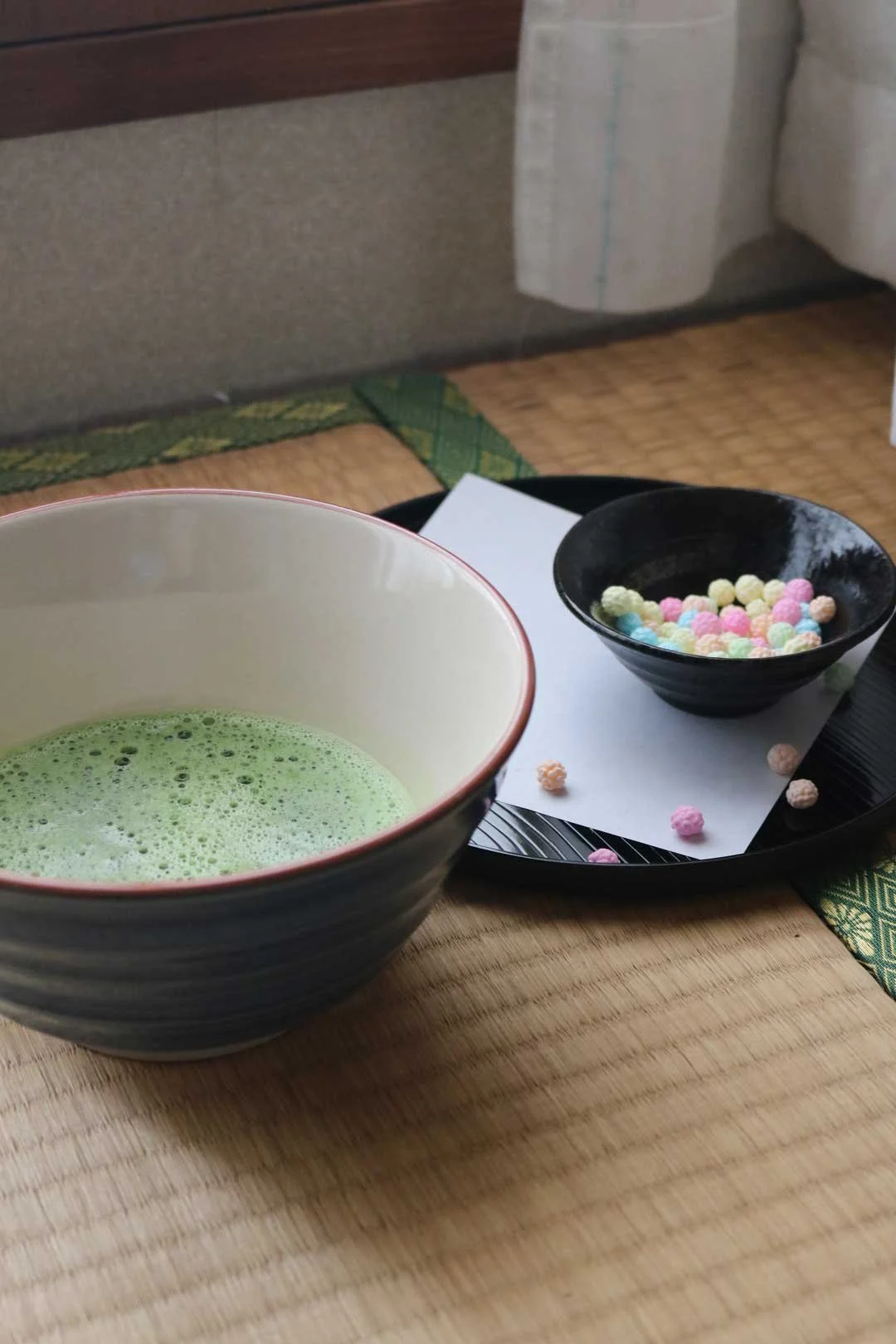5 Reasons To Drink Matcha During Menstruation
So, what’s the deal with matcha and menstrual cycle you ask?
It’s simple.
All women reading those lines know very well this natural phenomenon called ¨menstruation¨.
This very painful
Very stressful
Very tiring phenomenon...
The one that comes haunting us Every. Single. Month...
Well, it so happens that drinking matcha is a simple way to ease your frustration.
Matcha is packed with antioxidants and other healthy compounds.
So it has a beneficial impact on your body and can help reduce some of the most unpleasant symptoms of your period.
Let’s see exactly what this amazing drink can do for you!
What is Matcha?
In short, matcha is a type of powdered green tea exclusive to Japan.
It’s a bit different than other green teas because:
It is directly mixed with hot water, not brewed
You get more nutrients because you consume the whole leaf instead of just a brew
Also, Japanese farmers cover the growing tea bushes for a few weeks before harvesting.
This causes the leaves to produce more chlorophyll and reduces the production of catechins that contribute to bitterness.
It gives matcha a mellower flavor compared to regular sun-grown green tea.
So not only is matcha delicious, but it’s also great for your health.
Matcha and Menstrual Cycle
I said earlier that matcha can help women who are having a hard time on their period.
And I will come to it soon.
But let’s start at the beginning: the menstrual cycle’s effect on the body.
What are the Symptoms of Menstruation?
Menstruation is a natural process that occurs in females every month to clear out the uterus after ovulation.
This shedding causes them to bleed.
There are also hormonal changes that occur during this time.
For example, levels of progesterone and estrogen drop sharply just before menstruation begins.
Here are some of the most common symptoms of menstruation:
Abdominal cramps
Headache
Lower back pain
Fatigue
Bloating
Irritability/mood swings
Acne
Diarrhea/constipation
Of course, every woman is different and will experience different symptoms to varying degrees.
But most of them will agree with me when I say having your period is not fun…
Can Matcha Tea Affect Your Menstrual Cycle?
Yes.
Matcha may influence your menstruation in a good way.
Matcha is loaded with antioxidants and nutrients that have potent biological effects.
These include:
Catechins
Caffeine
Theanine
Chlorophyll
And vitamins C among others…
And remember that when drinking matcha, you are directly consuming tea leaves.
Meaning you ingest much more antioxidants than from a regular brew.
The point is matcha is good stuff and can improve your menstruation symptoms.
But I’m no healthcare professional.
So I went and contacted an expert in the field to get my facts checked.
Matcha ¨helps reduce cramping. It is good for your body, especially during menstruation¨.
This is according to Asako Miyashita, a Japanese Registered Dietitian Nutritionist of the State of New York (MS, RDN, CDN).
Mrs. Miyashita has more than 20 years of experience in the field of medical nutrition and is also working as a nutrition educator with 2nd.MD.
Are there Negative Side effects?
No, you shouldn’t feel any negative side effects.
The potentially troublesome compound people worry about in tea is caffeine.
Caffeine stimulates your central nervous system.
When over-consumed, it could lead to:
A disruption of sleep
Feeling of anxiety et nervousness
Mood swings
A woman on her period is already prone to those symptoms which could worsen due to caffeine.
However, you would need to drink a lot of matcha to feel any caffeine’s negative effects!
According to the FDA, healthy adults can consume up to 400 milligrams of caffeine a day (around 4 cups of coffee) without risk to their health.
And one cup of matcha tea contains even less caffeine than a cup of coffee.
Around 25 to 70g/cup of matcha versus 70 to 140mg/cup of coffee.
(Caffeine content varies depending on the quantity you use)
Plus, caffeine in matcha doesn’t affect you the same way it does in coffee.
I will tell you more about that later on.
So it’s safe to drink matcha on your period.
Just as it’s safe to drink matcha while being pregnant.
We wrote an article on this topic.
It is confirmed pregnant women can safely consume up to 200g of caffeine per day.
So if you are not super sensitive to caffeine…
One or two cups of matcha is nothing.
5 Reasons to Drink Matcha on Your Period
I told you matcha was full of healthy compounds.
So let’s see exactly what they can do to ease this difficult period of the month.
1 - It Helps Soothe Menstrual Cramps
Dysmenorrhoea (menstrual cramps) is one of the most painful symptoms of periods.
It is likely caused by the uterus contracting to expel its lining.
According to Mrs. Miyashita, the amino acid called L-theanine present in matcha can help ¨suppress the contraction of peripheral blood vessels¨.
Which would in turn reduce cramping pain.
L-Theanine is an amino acid that has many interesting properties contributing to matcha’s taste and its health benefits. To know more about L-Theanine, you can take a look at our dedicated article L-Theanine in Matcha - What’s the Deal?
A 2-years study held in China also showed regular consumption of green tea was linked to less cramping during menstruations.
The study suggests catechins present in green tea may help lessen the production of prostaglandins, a major cause of dysmenorrhoea.
So drinking matcha would be an effective way to relieve some of your menstrual cramps.
2 - It Peps You Up
Did you know?
Most women on periods feel drained and tired, even after a good night of sleep.
To recharge, they can turn to the usual caffeine boost.
(aka morning coffee or tea)
But the thing is caffeine in tea doesn’t affect you the same way it does in coffee.
While you do get an energy hit from coffee –
It doesn’t last very long and makes you feel quite jittery.
On the other hand, matcha:
Contains less caffeine than coffee
Provides you with more sustained energy
The latter is also due to the L-Theanine found in matcha.
¨Although some studies showed women who consumed caffeine were more likely to have menstrual abnormalities, a cup of matcha would be recommended.¨, says Mrs.Yamashita.
She confirmed that L-theanine alters the effects of caffeine in matcha.
It lessens the impact of caffeine on your body, making you feel alert but not nervous.
That’s why more and more people ditch coffee for tea.
3 - It Makes You Feel Relax
Being on your period is stressful.
You are irritable and emotional all day, crying or laughing for nothing in particular.
(No surprise there. Your hormones are on a rampage…)
Well, matcha’s L-Theanine can help you with that too.
Our expert in nutrition confirmed that L-Theanine in matcha can:
Reduce stress (lower serotonin and stress hormone, cortisol level)
Reduce anxiety (increases alpha wave activity in the brain)
Increase focus
Promote relaxation (boosts GABA levels, helping you sleep)
While L-Theanine is present in all teas, it is especially so in matcha because of its particular growing process (shade-grown).
So the high levels of L-theanine in matcha elevate your mood and help you feel calm.
4 – It Helps Clear Your Skin
Your skin complexion is not really the best during menstruation.
That is due to an increase in androgen hormone levels.
These hormones cause the sebaceous glands to produce more oil, which can lead to clogged pores and breakouts.
Turns out drinking matcha can improve that too.
According to a 2016 study, there is evidence some compounds present in green tea may:
Better your overall skin health
The catechin EGCG (epigallocatechin-3-gallate) found in abundance in matcha is especially beneficial for your skin.
It has anti-inflammatory properties that help prevent the inflammation and growth of acne.
Extra info: EGCG (epigallocatechin-3-gallate) is the most active and abundant catechin in green tea. A catechin is a type of flavonoid, which are plant metabolites with potent antioxidant activity. EGCG has been found to possess a wide range of therapeutic properties, including anti-inflammatory, anti-cancer, and neuroprotective effects.
5 - It Keeps You Hydrated
Obviously, you are losing a lot of blood when on your period.
So you can become dehydrated.
This might lead to more fatigue and cramping…
That is why it’s very important to drink enough water.
The recommended intake of water per day for a woman is 1.6L (approximately 8 glasses).
Drinking this much water in one day is already challenging.
But when you gotta drink even more…
So drinking tea is a great alternative to give your body the fluid it needs.
Extra info: There is this idea that tea and coffee are dehydrating because caffeine has diuretic properties. But researches show you would need to consume a minimum of 250 to 300mg of caffeine (at least 5 cups of strong matcha) to start feeling some mild diuretic effects.
So having 1 or 2 cups of matcha during the day:
Will not result in an overconsumption of caffeine (thus possible dehydration)
But will actually help you stay hydrated
2 Other Health Benefits of Matcha
With all those health benefits, you might be wondering by now why you are not already drinking matcha.
But you haven’t seen everything yet.
This amazing beverage has some more goodness to give you.
1 - It Boosts Your Immune System
One of the coolest things about matcha is that it naturally contributes to protecting your health.
A number of research studies suggest regular consumption of matcha may help your body prevent diseases, and notably:
Various cancers (antioxidants like ECGC help inhibit the inflammatory process of the formation of cancer)
Heart Diseases (ECGC is likely to have cardioprotective effects)
Neurodegenerative diseases like Alzheimer
2 - It’s Great For Oral Hygiene
Here again, the catechin ECGC plays a major role: it promotes oral hygiene.
Studies confirmed that ECGC has antibacterial properties.
This means ECGC in matcha helps you get rid of the bacteria in your mouth which are responsible for cavities and bad breath.
It is especially effective when drinking matcha after your meal.
So yes, matcha is good for your teeth.
Let’s Drink Matcha Together
Having your period is draining.
Physically and mentally.
The good news is there is an easy way of making it more bearable.
And that is drinking matcha.
Regular consumption of matcha can not only ease cramping and reduce stress –
it can also provide you with the energy you so dearly need to keep going.
So, now that matcha and menstrual cycle hold no more secrets for you…
You might as well use it to your advantage.
Plus, making matcha at home is super easy.
And whisking this fine green powder into a frothy drink is another fun way to relax.
(well, it works for me…)
By the way, if you are interested in buying the best matcha there is, check out our Matcha Monthly club where you get fresh ground matcha delivered to your door every month.
Quality is important if you want to get the most out of your tea.
We provide you with the freshest matcha, grown in Uji and stone-ground in-house the traditional way.

